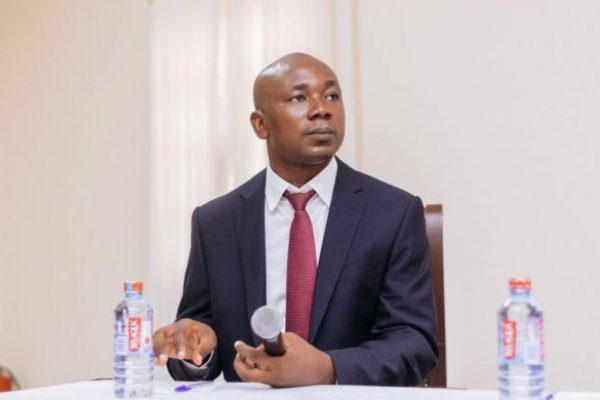Economist and Professor of Finance at the University of Ghana Business School (UGBS), Prof Godfred Bokpin believes the government will have a difficult time convincing individual bondholders to participate in the Domestic Debt Exchange Programme (DDEP).
According to him, individual bondholders, mostly pensioners, have had their share of suffering from the economic crisis since the past year, and as a result, they were adamant about being included in the programme.
"It was always going to be difficult to include individual bondholders, especially pensioners. In such difficult times, they’ve been living through…inflation era for the past 12 months. So even these bonds that we are talking about, they having haircuts here and there, they’ve really suffered from inflationary pressures, the news is negative in real terms, and all of that."
“I think for the sake of our democracy, and social cohesion and stability, I think it is prudent that individual bondholders are excluded,” Prof Bokpin said on The Probe on Sunday.
Prof Bokpin also commended the technical committee on the debt exchange programme for proposing other alternatives on revenue and expenditure to be considered by the government.
According to him, the committee helped to clarify the quantification of many individual bondholders' grievances in terms of fiscal savings through measures such as spending cuts and other revenue enhancement.
Prof Bokpin also stressed that he believed the technical committee’s actions were quite illustrative of the level of wakefulness that has presided over Ghanaians over the years.
Ghana's economy is still recovering from the pandemic and the government is attempting to restructure its massive debt load in order to qualify for assistance from the International Monetary Fund.
Thus, the Ministry of Finance introduced a domestic debt exchange programme on December 5, 2022.
The country needs about 80% of bondholders to sign up for its domestic debt exchange programme, however, individual bondholders have since opposed the programme due to what they say is a lack of clarity about its terms.
Eventually, it was disclosed in a press release dated January 23, that the government has come to an agreement with the Ghana Association of Banks to pay a 5% coupon on its 2023 bonds, which the original debt exchange plan had said would not pay interest.
Additionally, it was stated in the deal that all other restructured bonds will pay 9% coupons rather than the variable rates originally outlined.
Latest Stories
-
Mobus CEO apologises to Nigerian Police over Abuja land row, distances firm from protest at Nigerian High Commission in Accra
1 hour -
Experts urge institutionalisation of evidence-based health policies in Ghana
2 hours -
Government to convert National Cathedral site into National Cultural Convention Centre
2 hours -
Former Sports Minister Mustapha Ussif loses sister
3 hours -
Ayoum community appeals for fixing of collapsed bridge to ease commuting
3 hours -
Full text: Mahama’s speech at the Post-Election Evaluation Dialogue
3 hours -
Kumasi: 545 police personnel pass out to support 24-hour economy
3 hours -
No Ghanaian child will be denied tertiary education because of fees – Mahama
3 hours -
Ghana, U.S. reaffirm strategic ties at 249th Independence Day celebration
3 hours -
Full text: Mahama’s speech at launch of No Fees Stress policy
4 hours -
President Mahama promises justice for electoral violence victims
4 hours -
JoyNews Impact Maker awardee nominated for Global Citizen Waislitz Award, vote for him to win $100,000
4 hours -
Partey has fully cooperated with police throughout three-year investigation – Lawyer Jenny Wiltshire
6 hours -
Thomas Partey denies all the charges against him – Partey’s lawyer Jenny Wiltshire
6 hours -
Labena unveils new album “Life in Roses” at Bayview Village
6 hours

